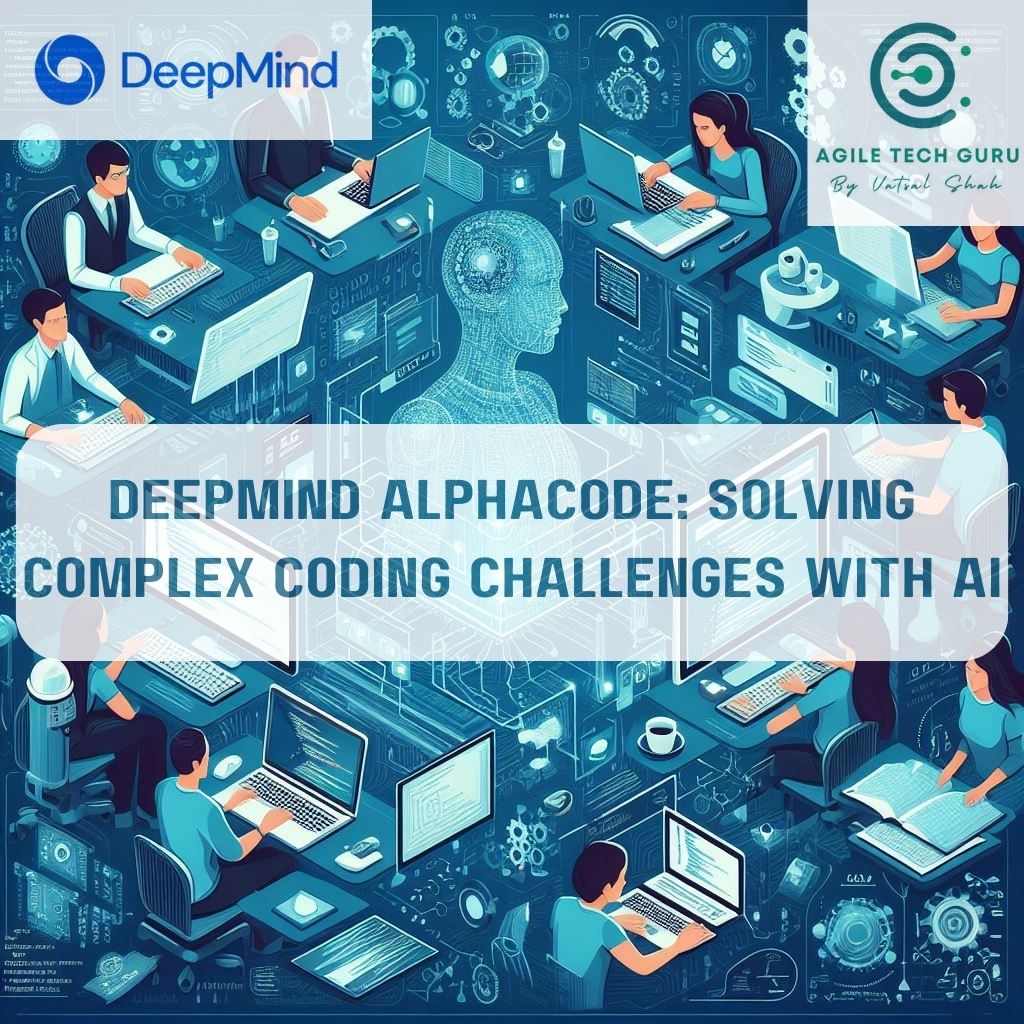The field of Artificial Intelligence (AI) continues to expand and redefine the boundaries of what’s possible across various industries. One notable area of AI application that has garnered significant attention is its role in software programming and problem-solving – a domain traditionally viewed as the exclusive preserve of human brainpower. With the advent of AI models like DeepMind’s AlphaCode, the narrative around coding and its inherent complexities is rapidly changing.
Programmers, AI enthusiasts, and tech innovators are witnessing a new era in which AI algorithms can analyze, understand, and even generate complex strands of code. This post will explore DeepMind AlphaCode, its implications for the programming landscape, and its potential to redefine our understanding of problem-solving in the digital age.
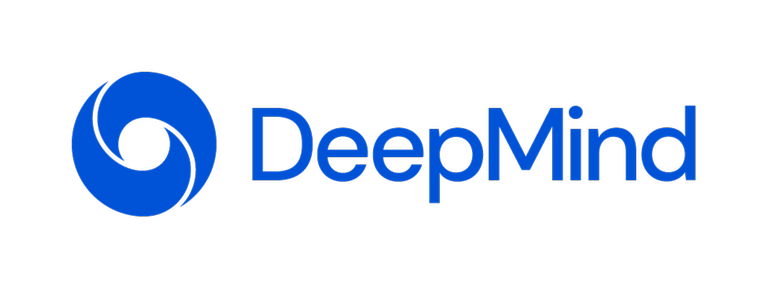
The Need for Efficient Problem-Solving in Coding
Software development, at its core, is a process of problem-solving. Programmers are constantly met with intricate coding challenges that demand innovative, efficient, and sometimes unorthodox solutions. The significance of speed and efficiency in resolving these problems cannot be overstated. In a highly competitive digital economy, the ability to streamline problem-solving processes is a valuable currency that can mean the difference between timely software deployment and missed opportunities.
The Challenge of Complex Coding Tasks
Complex coding tasks are characterized by sizable projects, intricate dependencies, and the need for solutions that work not just in isolation, but in harmony with the broader software ecosystem. These tasks often require a deep understanding of the domain, extensive coding experience, and the ingenuity to devise optimal solutions under tight deadlines.
The Role of AI in Addressing Coding Challenges
Enter AlphaCode and similar AI-driven systems. These technologies promise to revolutionize the efficiency and approach to coding by leveraging machine learning to understand and manipulate code at levels previously unattainable.
What is AlphaCode?
DeepMind AlphaCode is an AI model developed by Google’s DeepMind that specifically targets the field of programming. It is designed to understand and generate code, bridging the gap between human intent and machine-executable commands.
Developed by DeepMind
Founded in 2010, DeepMind’s mission is to “solve intelligence” and then use that to “solve everything else.” Its portfolio of AI applications spans from game-playing algorithms to healthcare diagnostic tools, and now, to programming itself.
Machine Learning Model Trained on Vast Coding Data
AlphaCode is a machine learning model trained on an extensive corpus of code from open-source projects, public repositories, and coding competitions. This vast and varied dataset allows AlphaCode to gain insights not just on how code is written, but on the structures and patterns that constitute efficient and scalable solutions.
Ability to Understand and Generate Code
Unlike previous AI models that focused on understanding natural language or images, AlphaCode has been fine-tuned to interpret and manipulate programming languages. Its primary functions include accurately understanding tasks expressed in natural language and generating code to fulfill those tasks.
Performance on Coding Competitions and Benchmarks
AlphaCode’s capabilities were tested in multiple online coding competitions and outperformed many human coders in terms of efficiency and accuracy. It excels particularly in the rapid prototyping of algorithms and is adept at providing first-cut solutions that can be further refined by human programmers.
How AlphaCode Works
AlphaCode’s underlying technology is a tapestry of cutting-edge machine learning techniques that enable it to interact with the human-written coding world.
Machine Learning Techniques Used
The heart of AlphaCode’s technology lies in transformer models with self-attention mechanisms, which have proven to be highly effective in sequential data tasks such as natural language processing and code generation.
Training Data and the Importance of High-Quality Datasets
The training of AlphaCode is heavily reliant on the quality, diversity, and representativeness of its datasets. DeepMind undertakes rigorous efforts to ensure that the model is exposed to as broad a spectrum of coding challenges as possible in a supervised learning environment.
Code Understanding and Generation Process
AlphaCode employs a two-fold process of understanding and generation. During the understanding phase, it dissects the task to extract relevant information, such as input/output relationships, data types, and operations required. In the generation phase, it uses this understanding to build a solution in line with established coding conventions and best practices.
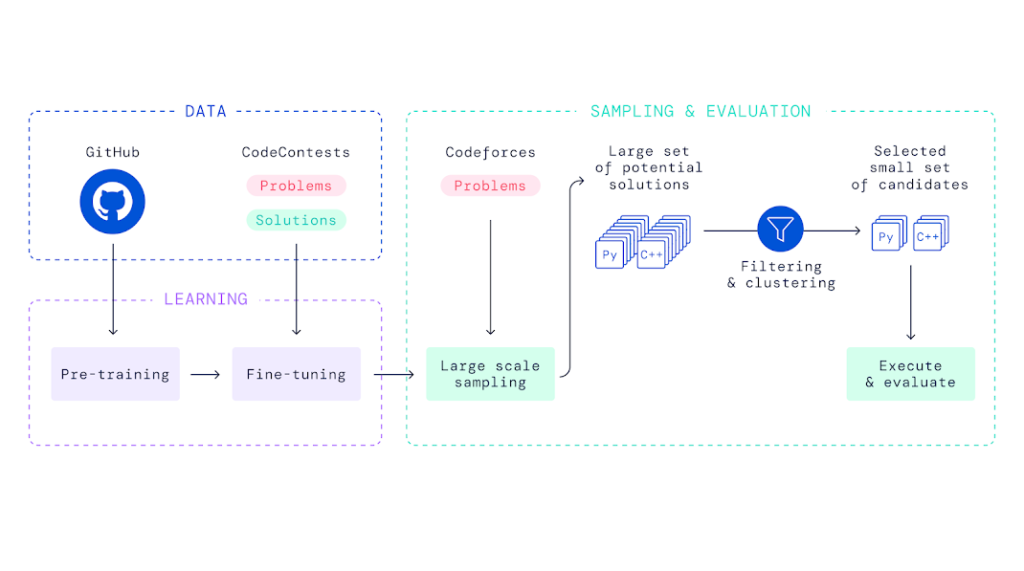
Understanding DeepMind AlphaCode
DeepMind’s foray into AI-generated coding represents a significant leap in the capabilities of AI systems. AlphaCode’s unique architecture and performance metrics are reshaping the conversation around AI’s role in augmenting and potentially supplanting certain facets of human programming efforts.
Applications of AlphaCode in Solving Coding Challenges
The potential applications of AlphaCode in resolving coding challenges are vast and varied. From auto-generating code snippets to complex algorithmic solutions, AlphaCode stands at the forefront of a new era in software development.
Examples of Complex Coding Challenges
Consider a financial institution requiring the implementation of a high-frequency trading algorithm, or a healthcare company designing a machine learning model for disease prediction. These tasks entail complex logical structures, domain-specific knowledge, and stringent performance requirements that demand meticulous attention to detail. AlphaCode’s ability to rapidly prototype and iterate solutions could be a game-changer in these contexts.
Comparison with Traditional Coding Methods
Conventional coding methods involve a blend of creativity and rigidity, shaped by the human programmer’s cognition and the idiosyncrasies of their thought processes. AI-driven coding, on the other hand, offers a more data-driven, optimized solution that is not bound by human limitations.
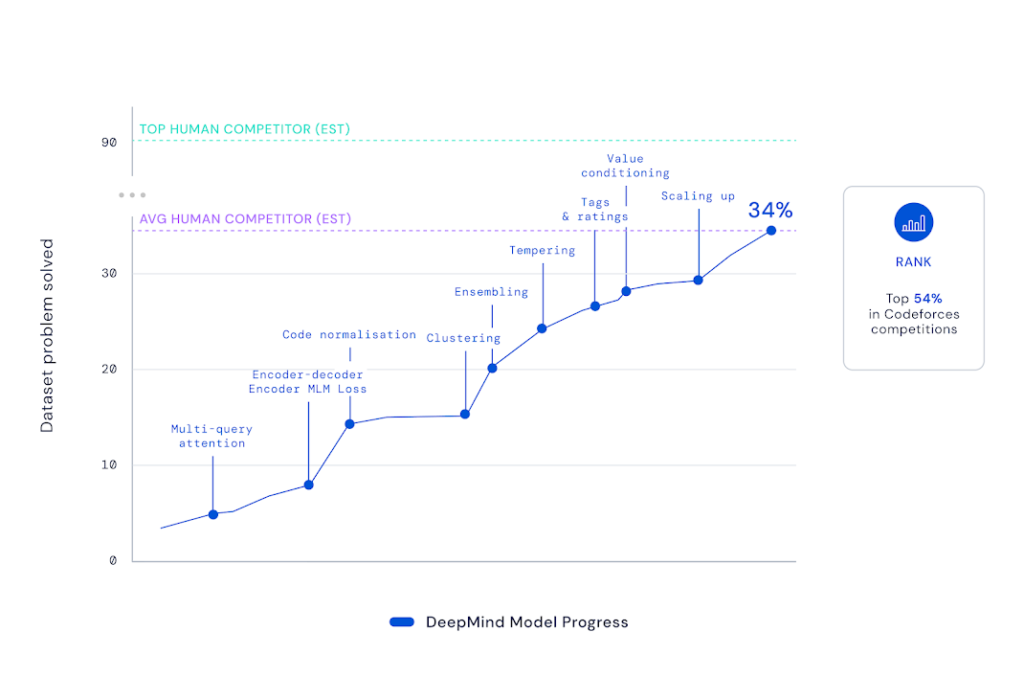
Advantages of Using AlphaCode
The advantages of employing AlphaCode or similar AI systems in coding are evident, particularly in terms of speed, efficiency, and scale of operations.
Efficiency and Speed in Problem-Solving
AlphaCode excels at quickly generating first-cut solutions in response to complex tasks, considerably reducing the initial programming effort required by human developers. This efficiency translates into faster development cycles and quicker go-to-market timelines for software products.
Ability to Handle Large-Scale and Complex Problems
The machine learning models behind AlphaCode are inherently parallelizable and can handle large-scale tasks with relative ease, a feat that is often a hurdle for human programmers due to the limitations of time and cognitive load.
Potential Impact on the Coding Community
While AI systems like AlphaCode are not poised to replace human programmers, they do have the potential to reshape the programming landscape. The emphasis may shift from code generation to higher-level tasks such as architecture design and problem conceptualization, where human creativity and judgment still hold sway.
Limitations and Challenges
Despite its manifold benefits, the application of AlphaCode is not without its challenges and limitations, which are important to acknowledge and address as the technology develops.
Current Limitations of AlphaCode and Similar Systems
AlphaCode, like all AI systems, is a product of its training data and the algorithms that operate on it. This means that it is not immune to quirky outputs or errors. Furthermore, its understanding of context is limited, which can lead to inaccuracies in task comprehension and solution generation.
Difficulties in Reasoning About Code and Understanding Context
One of the fundamental challenges for AI systems like AlphaCode is to reason about the code in a manner that is consistent and reflective of intent. Understanding the broader context in which code operates remains a complex task that is under active research in the AI community.
Scalability and Efficiency Challenges
While AlphaCode is capable of handling a broad range of coding challenges, its scalability to entirely novel problem domains or extreme edge cases is not guaranteed. The technology can sometimes struggle with tasks that deviate significantly from the data it has been trained on.
Applications and Use Cases
AlphaCode offers a spectrum of applications, ranging from assisting human developers to potentially automating certain coding processes altogether.
Assisting Human Developers with Coding Tasks
One of the most immediate applications of AlphaCode is as a powerful assistant tool for human developers. It can suggest code snippets, offer alternative solutions, or prototype entirely new aspects of a project, thereby enhancing the productivity of the human team.
Automating Certain Coding Processes
In certain scenarios, particularly for repetitive tasks or those with well-defined parameters, AlphaCode can be used to generate entire sections of code with little to no human intervention, streamlining the software development process.
Solving Complex Algorithmic Problems
The ability of AlphaCode to generate and optimize algorithms in response to specific tasks paves the way for solving complex analytical problems that typically require a combination of statistical analysis, mathematical modeling, and software implementation.
Potential in Education and Teaching Programming
AlphaCode’s role also extends to the realm of education, where it can serve as a learning tool for aspiring programmers, offering real-time feedback and code generation dynamics that can aid in the comprehension and application of programming principles.
Case Studies
Real-world implementations and case studies offer valuable insights into the practical applications and successes of AlphaCode.
Video Game Development Case Study
In the realm of video game development, AlphaCode has been employed to automate the generation of game mechanics and procedural content. By analyzing design specifications and player feedback, it has enabled rapid prototyping and iteration, leading to improved gameplay experiences and faster time-to-market.
Medical Image Analysis and Diagnosis Implementation
The use of AlphaCode to develop AI models for medical image analysis has led to significant strides in disease detection and planning treatment strategies. Its capabilities have reduced the workload on healthcare professionals and enhanced the overall quality of patient care.
Ethical Considerations
The rise of AlphaCode and similar AI systems in the programming domain raises significant ethical and societal considerations that must be thoroughly explored.
Bias and Fairness in Training Data and Outputs
The risk of bias in training data, and consequently in the outputs generated by AI systems, is a pressing concern. Left unaddressed, bias can lead to unfair outcomes, perpetuate inequality, and undermine the trust in AI systems.
Intellectual Property and Code Ownership Concerns
The generation of code by an AI system raises questions about intellectual property and code ownership. It is essential to establish clear and fair guidelines to determine the rightful ownership of AI-generated code, particularly in commercial and legal contexts.
Impact on Coding Jobs and the Workforce
The potential of AI to automate or assist in coding tasks has implications for the coding workforce. While some argue that AI will create new job roles, others express concerns about job displacement and the changing nature of software development work.
Transparency and Interpretability of AI-Generated Code
There is a need for AI systems like AlphaCode to be transparent and interpretable. Developers and stakeholders should be able to understand the reasoning behind the code generated by AI models, ensuring accountability and trust.
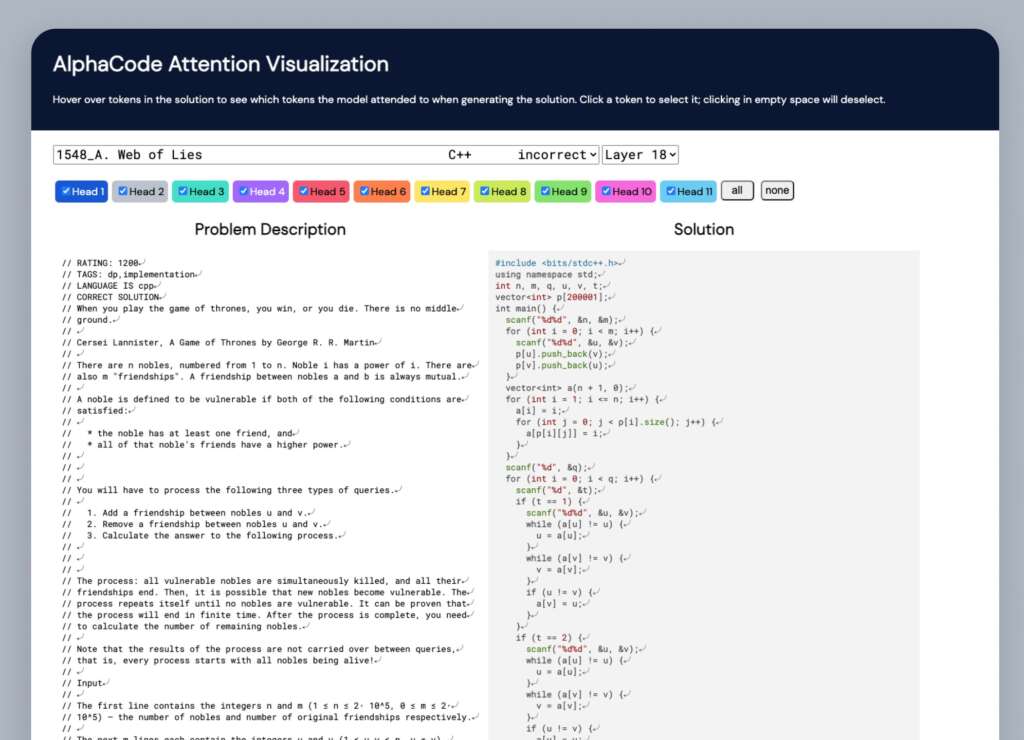
The Future of Coding with AI
The trajectory of AI-driven coding solutions like AlphaCode signals a future where the lines between human and machine contributions in programming are becoming increasingly blurred.
Potential Advancements in AI-Driven Coding Solutions
The development of AI models that can reason even more effectively about code and its context, as well as those that exhibit self-improving capabilities, promises to further advance the state of AI-driven coding solutions.
Impact on the Coding Industry and Workforce
The coding industry is likely to continually adapt to the integration of AI-driven solutions. Workforce roles may evolve towards more creative and strategic functions, with AI systems handling the more tactical aspects of software development.
Future Directions for DeepMind AlphaCode
DeepMind’s commitment to advancing the capabilities of AlphaCode and exploring its potential in various domains signifies a sustained focus on developing AI models that can tackle increasingly complex tasks.
Future Directions and Outlook
With ongoing research and the application of AI models to evolving challenges, the potential of systems like AlphaCode to redefine problem-solving paradigms is vast.
Ongoing Research and Development Efforts
DeepMind continues to invest in the research and development of AI systems that push the envelope in terms of understanding and manipulating code. This includes efforts to tackle the interpretability and reasoning challenges associated with AI-generated solutions.
Integration with Other AI Systems and Tools
The integration of AlphaCode with other AI tools and systems is likely to produce synergies that amplify the benefits of each component, leading to more potent and versatile coding solutions.
Potential Impact on Software Development Practices
The adoption of AI-driven coding solutions has the potential to impact software development practices at a fundamental level. It may introduce new best practices and methodologies that optimize the collaboration between human and machine actors.
The Role of Human Developers in an AI-Assisted Future
In an AI-assisted future, the role of human developers will remain indispensable. Their contributions in understanding complex contexts, ensuring quality, and providing creative solutions will complement the efficiency and scale offered by AI systems.
Conclusion
DeepMind AlphaCode represents not just a technological milestone, but a philosophical one in our relationship with AI. It is paving the way for a future in which AI systems act not just as tools, but as collaborators in the creative arena of coding. With ongoing innovation and careful consideration of its implications, AlphaCode and its successors have the potential to usher in a new chapter in software development, with unprecedented efficiency, scale, and possibilities.
The march of AI into the realm of coding is inexorable, but its path is shaped by the very humans it seeks to assist. Ethical stewardship, foresight in the face of change, and the wisdom to leverage technology for the greater good will be essential for the flourishing co-existence of man and machine in the coding enterprise.

